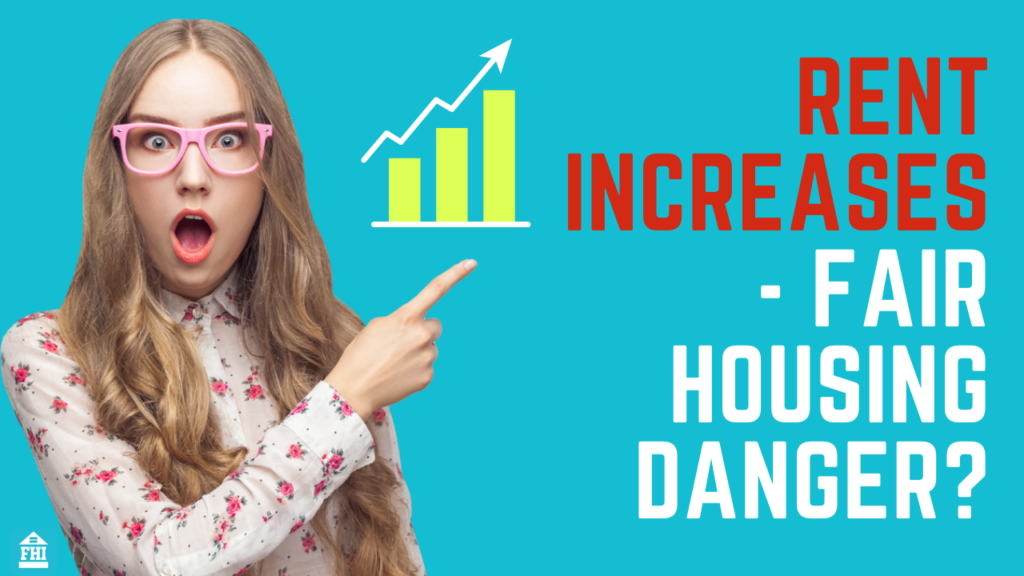Rent increases are a regular part of the property management housing industry. But what are some potential fair housing dangers we see when it comes to how a company determines who will or will not be getting an increase? And how can they be avoided?
Estimated reading time: 3 minutes

Table of contents
Rental cost reviews pose a hectic time for most property management companies since current rates are drastically increasing. It’s easy to get caught up in the day-to-day and forget that there could be a fair housing implication with every increase. Consider this scenario.
Two staff members have come together to review the current rates tenants are paying and whose leases are coming up for renewal. Upon review, it’s noted that there is a disparity in who is getting an increase and how much. When asked, the other staff member explained that the increases were based on the following criteria:
- Mr. Wong is getting an increase because he is constantly breaking things and requesting repair in the unit
- Ms. Fanning is getting an increase because her children are destructive and messy, creating more work for the employees
- All quiet residents will receive little to no increase
Do you see the problem here?
Is there a fair housing danger when it comes to raising rents?
The short answer is “yes.” For clarification, we are not discussing federally funded or tax credit properties. Those are entirely different and adhere to a highly complex system. We are talking about private market properties.
There are generally two methods used when considering a rent increase. The easiest and safest is to increase at the same percentage rate across the board. This way, no one has been treated differently and, therefore a lesser risk of a fair housing complaint.
The second way to raise rent is through a negotiation process. This usually entails a process where a property manager or leasing agent negotiates a range for a rate increase. Here is where problems can arise because anytime people are treated differently, a fair housing implication can arise. For example, the scenario we considered earlier. Either of those situations could be perceived as biased—either based on race or familial status. In addition, raising a tenant’s rate based on a bias could have the appearance of being punitive and trying to discourage them from renewing, which again can lead to a fair housing complaint.
What should properties do to make sure they avoid these dangers?
Examine your process. Every person involved in the decision-making and execution of a rent increase needs to thoroughly understand your process and policies so that everything is delivered consistently. Also, document, document, document! Proper documentation of every step that was taken will be your greatest asset in the event that your increase is called into question or a fair housing complaint is made.
Rent is going up; it’s just the nature of the beast. However, in-depth fair housing training and education will help you side-step potential dangers and maintain fair housing compliance.
You May Also Like:
